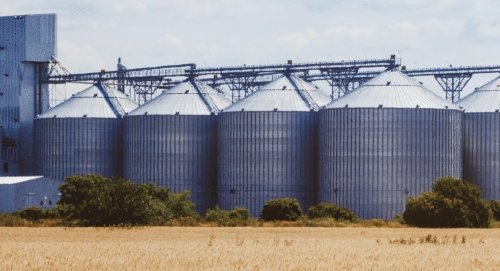As the canola business continues to grow across the country, many growers are looking to achieve higher yields through better control of insect pests.
FMC technical extension specialist Steve Fischer said there were now large areas sown to canola throughout the country and growers were pushing yields higher.
“It's important to protect the yields as much as we can. Canola is high input and high return.”
He said growers were looking at how to control pests such as diamondback moth, native budworm and aphids which could cause significant damage to crops.
“At FMC we have a product, Exirel Insecticide, which has just been registered into canola. It's a new chemistry group in that crop to control diamondback moth and native budworm, with suppression of some aphids."
He said diamondback moth was an interesting pest because it doesn’t always show up in canola but when it did, farmers needed to react quickly.
“It's important to monitor what's going on in canola as it’s such a valuable crop.”
FMC area business manager Greg Bennett said a sweep net could be used by agronomists and growers to determine what pests, and also beneficial insects were in the crop.
There are also several threshold calculators available to work out whether an insecticide spray is warranted at a particular time of the season.
Mr Bennett said Exirel Insecticide was an ideal option for growers needing to spray for diamondback moth or native budworm, particularly if there were underlying aphid populations in the crop.
He said Exirel Insecticide had been successfully used in citrus crops over many years and the experience there has provided a lot of confidence for canola.
“It's one of the softer chemistries, particularly at the lower rates, and in canola we can pick up caterpillar pests as well as suppression of aphids without significant interference with the beneficial predators.
“You're leaving most of your predatory bugs, your wasp predators, and your general predators like ladybirds unharmed.”
He said residential predators, or beneficial insects, played an important role in the control of pests in all crops but the more broad-spectrum insecticides can cause significant harm to these insects.
“If you're knocking them out in this season, you're potentially knocking them out for several seasons until they can build back up. While diamondback moth may not be a pest that comes every year, you don't want to be knocking out your residential predators too.
“The bottom line is they don't cost anything to maintain. It's a free ride. In most crops that have a pest, there will naturally be predators. They operate on windy days; they operate on wet days. If you can't get into the paddock, they're still there, helping to maintain a level of control.
“One of the other advantages of Exirel Insecticide is its translaminar activity. It means it travels through the leaf from one side to the other which is often where the pests reside.
“It is also locally translocated, meaning it can help protect some of the new growth providing a longer residual activity than alternative insecticides.”
However, Mr Fischer said it is important to remember, rapidly growing crops may have growth dilution and always continue to monitor your crops.
“Exirel Insecticide is rainfast two hours after application and is robust for a length of time, which some of the other products can’t do.
“It is also registered for aerial applications, making it particularly useful later in the season or in wet conditions when a ground rig isn’t suitable.”
Mr Fischer said Exirel Insecticide could be mixed with commonly used fungicides or other products and could be a good additional option in a tank when chasing blackleg or sclerotinia.
“If you've got a late infestation of pests that you've been monitoring, and you find diamondback moth coming in late to the thresholds, which are going to cause economic issues, then adding it to the fungicide spray makes sense.”
FMC recommends using Exirel Insecticide in conjunction with Parachute Spray Oil, which is a paraffinic oil and has its own registered label claims on pests as well as some spreading qualities.
“Exirel Insecticide in combination with Parachute will provide a broader spectrum of pest activity,” Mr Fischer said. “A spray droplet containing Parachute will hit the leaf and spread the product right across.
“Exirel Insecticide moves into the plant quite quickly, but by adding Parachute to it, you have an even better coverage of the product. It’s a three-way attack on the pest we're targeting.
“Exirel Insecticide as part of an integrated pest management program will provide benefits with the control of pests and by maintaining the beneficials in the paddock.
“It's a good part of a well-planned program for chasing some of the pests that have a high economic impact. If they come in large numbers, they can have an economic impact on your canola crop."




